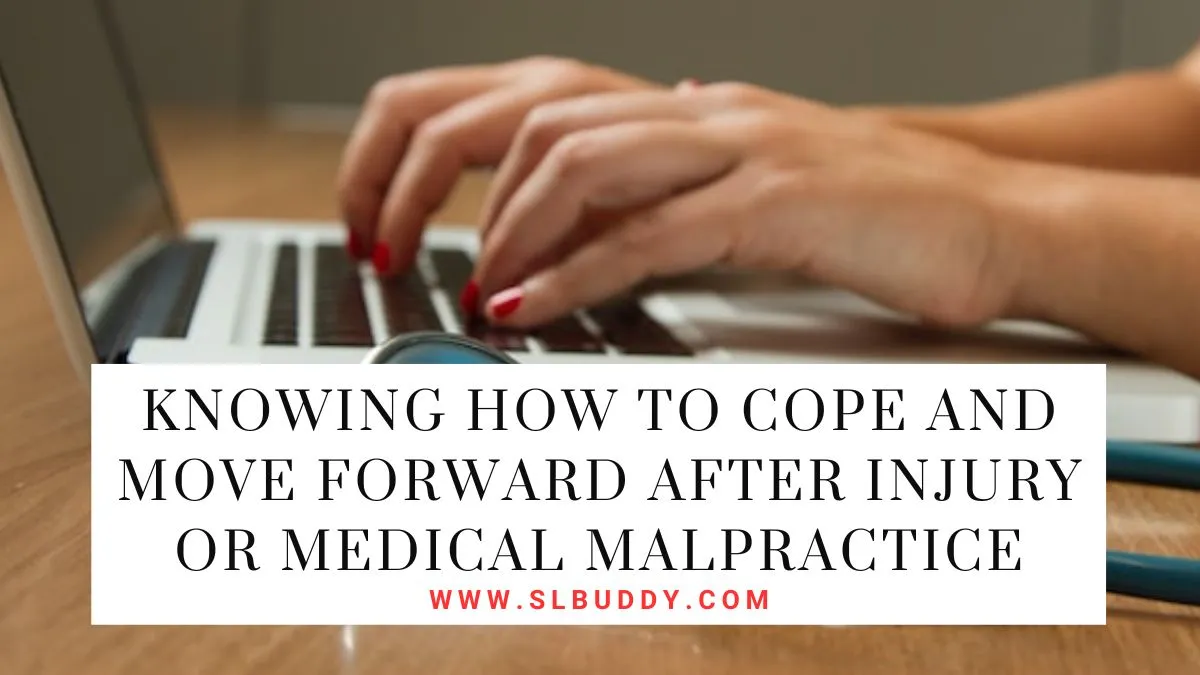
Recovering from an injury or medical malpractice can be incredibly emotionally and physically draining.
It can be a dispiriting and difficult time, leaving you feeling confused and unsure of your next steps.
However, with the right information at hand, it is possible to learn how to effectively cope with the aftermath of such an experience, as well as how best to move forward in life without being weighed down by what’s happened.
In this blog post, we will go through useful advice on how you can come out the other side stronger than ever and start living again after suffering an injury or medical malpractice.
Take Legal Action If You Can
If you have been a victim of medical malpractice, it may be possible for you to seek legal action against the responsible party.
Of course, this will depend on your specific case and circumstances. It is important to consult with a lawyer who specializes in medical malpractice cases and discuss your options.
Taking legal action can not only help hold the responsible party accountable but also provide financial compensation for any damages incurred.
However, it is important to note that the legal process can be lengthy and emotionally draining, so it is essential to carefully consider if this is the right path for you. According to the experts working with Tommy Hastings, medical malpractice cases are well known as being very difficult to win.
This is why it’s important to have a strong and experienced legal team on your side, who can guide you through the process and ensure that you get the justice and compensation you deserve.
Acknowledge Your Feelings
Facing an injury or medical malpractice can undoubtedly be an emotionally taxing experience.
It’s essential to recognize and acknowledge the emotions that arise in response to such situations.
Ignoring these feelings can lead to long-term effects on mental health, such as depression and anxiety.
By understanding the emotional impact of an injury or medical malpractice, you can better equip yourself to cope with the situation.
It’s crucial to give yourself time and space to process your emotions and seek help if needed. Remember, taking care of your emotional well-being is just as important as your physical well-being.
If you find that you are struggling to cope, consider seeking professional therapy or joining a support group for individuals who have gone through similar experiences.
Reach Out For Support From Family And Friends
As human beings, we are wired for connection and thrive on the support of others. When we face challenges, it’s natural to turn to our loved ones for support and guidance.
During this difficult time, don’t be afraid to reach out to family and friends for emotional support or practical help with day-to-day tasks.
They can also provide a comforting presence during appointments or offer a listening ear when you need to talk about your feelings.
Sharing your struggles with others can often make them feel more manageable and provide a sense of relief.
Plus, having a strong support system can also help prevent feelings of loneliness and isolation during the recovery process.
Educate Yourself On Your Situation
Knowledge is power, especially when it comes to dealing with an injury or medical malpractice.
Educating yourself on your condition, treatment options, and potential outcomes can help ease any anxiety or fear you may be experiencing.
It’s essential to ask questions during appointments and research reputable sources to understand what is happening in your body and what steps need to be taken for recovery.
Additionally, understanding the legal aspects of your situation can also help you make informed decisions about your next steps.
Remember, knowledge is not only empowering but can also provide a sense of control in an otherwise unpredictable situation.
Find Professional Help If Needed
Taking care of your mental health is just as important as taking care of your physical health.
Sometimes, the recovery process can become overwhelming, and it’s okay to seek professional help if needed.
Therapy or counseling can provide a safe space to express your feelings and give you practical tools for coping with difficult emotions.
Additionally, there are also support groups specifically for individuals who have experienced medical malpractice, which can offer a sense of community and understanding during this challenging time.
Most importantly, don’t be afraid to speak up and ask for help when you need it. When it comes to your well-being, there is no shame in seeking support and guidance from trained professionals.
Focus On Self-Care
While dealing with an injury or medical malpractice, it’s easy to put self-care on the back burner.
However, taking care of yourself during this time is crucial for your recovery and overall well-being.
This can include getting enough rest, eating nourishing foods, staying hydrated, and engaging in activities that bring you joy and relaxation.
Self-care also means setting boundaries and not pushing yourself too hard physically or emotionally.
It’s essential to listen to your body and give it the time and space it needs to heal.
Consider incorporating relaxation techniques such as meditation or yoga into your routine to help reduce stress and promote overall wellness.
These small acts of self-care can make a significant difference in your recovery journey.
It’s also important to remember that self-care is an ongoing process, so continue to prioritize it even after your recovery.
Don’t miss: Tools That Every Professional Driver Should Have In Their Vehicle
The bottom line
Facing the aftermath of medical malpractice can be difficult, but by taking care of yourself with emotional and legal support, you can empower yourself to keep moving forward.
Seeking justice in cases of medical malpractice is not easy, but it is important. If your situation warrants legal action, don’t be afraid to make your voice heard.
Whether it’s holding those responsible for your health accountable or simply creating awareness about medical errors and their impact on individuals, we must stand together as a community and push for improved safety standards in the healthcare system.
With that being said, no matter what hurdles lie ahead for victims of medical negligence – do not forget to prioritize your own self-care and emotional well-being first and foremost.
Invest time in activities that bring you joy and peace of mind; for understanding your feelings and allowing yourself to heal is just as important as getting justice when dealing with medical malpractice.
It’s up to us today to ensure a better future tomorrow—so take action now!














